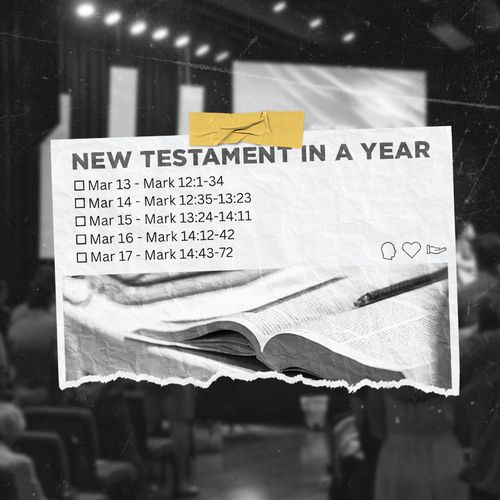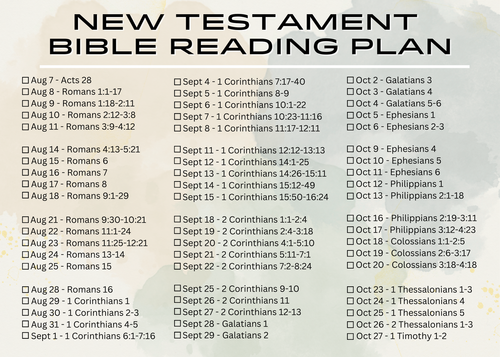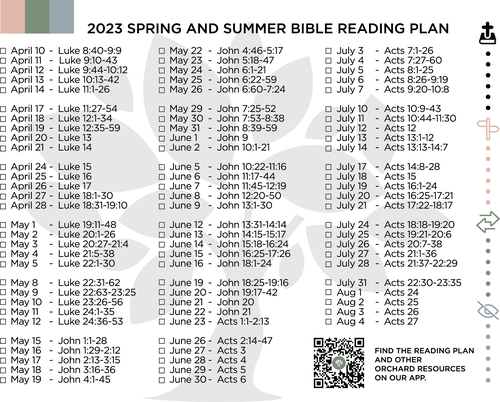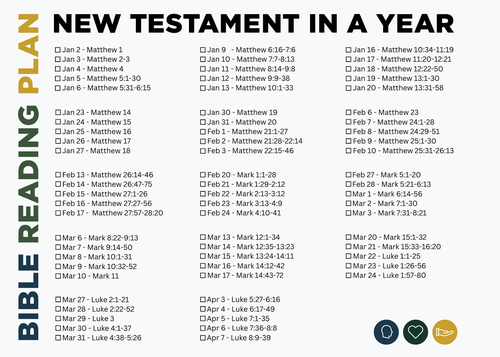The Rejected Stone, Taxes, And The Great Commandment

The Parable of the Tenants
And he began to speak to them in parables. “A man planted a vineyard and put a fence around it and dug a pit for the winepress and built a tower, and leased it to tenants and went into another country. When the season came, he sent a servant to the tenants to get from them some of the fruit of the vineyard. And they took him and beat him and sent him away empty-handed. Again he sent to them another servant, and they struck him on the head and treated him shamefully. And he sent another, and him they killed. And so with many others: some they beat, and some they killed. He had still one other, a beloved son. Finally he sent him to them, saying, ‘They will respect my son.’ But those tenants said to one another, ‘This is the heir. Come, let us kill him, and the inheritance will be ours.’ And they took him and killed him and threw him out of the vineyard. What will the owner of the vineyard do? He will come and destroy the tenants and give the vineyard to others. Have you not read this Scripture:
“‘The stone that the builders rejected
has become the cornerstone;
this was the Lord’s doing,
and it is marvelous in our eyes’?”
And they were seeking to arrest him but feared the people, for they perceived that he had told the parable against them. So they left him and went away.
Paying Taxes to Caesar
And they sent to him some of the Pharisees and some of the Herodians, to trap him in his talk. And they came and said to him, “Teacher, we know that you are true and do not care about anyone’s opinion. For you are not swayed by appearances, but truly teach the way of God. Is it lawful to pay taxes to Caesar, or not? Should we pay them, or should we not?” But, knowing their hypocrisy, he said to them, “Why put me to the test? Bring me a denarius and let me look at it.” And they brought one. And he said to them, “Whose likeness and inscription is this?” They said to him, “Caesar’s.” Jesus said to them, “Render to Caesar the things that are Caesar’s, and to God the things that are God’s.” And they marveled at him.
The Sadducees Ask About the Resurrection
And Sadducees came to him, who say that there is no resurrection. And they asked him a question, saying, “Teacher, Moses wrote for us that if a man’s brother dies and leaves a wife, but leaves no child, the man must take the widow and raise up offspring for his brother. There were seven brothers; the first took a wife, and when he died left no offspring. And the second took her, and died, leaving no offspring. And the third likewise. And the seven left no offspring. Last of all the woman also died. In the resurrection, when they rise again, whose wife will she be? For the seven had her as wife.”
Jesus said to them, “Is this not the reason you are wrong, because you know neither the Scriptures nor the power of God? For when they rise from the dead, they neither marry nor are given in marriage, but are like angels in heaven. And as for the dead being raised, have you not read in the book of Moses, in the passage about the bush, how God spoke to him, saying, ‘I am the God of Abraham, and the God of Isaac, and the God of Jacob’? He is not God of the dead, but of the living. You are quite wrong.”
The Great Commandment
And one of the scribes came up and heard them disputing with one another, and seeing that he answered them well, asked him, “Which commandment is the most important of all?” Jesus answered, “The most important is, ‘Hear, O Israel: The Lord our God, the Lord is one. And you shall love the Lord your God with all your heart and with all your soul and with all your mind and with all your strength.’ The second is this: ‘You shall love your neighbor as yourself.’ There is no other commandment greater than these.” And the scribe said to him, “You are right, Teacher. You have truly said that he is one, and there is no other besides him. And to love him with all the heart and with all the understanding and with all the strength, and to love one’s neighbor as oneself, is much more than all whole burnt offerings and sacrifices.” And when Jesus saw that he answered wisely, he said to him, “You are not far from the kingdom of God.” And after that no one dared to ask him any more questions.
And he began to speak to them in parables. “A man planted a vineyard and put a fence around it and dug a pit for the winepress and built a tower, and leased it to tenants and went into another country. When the season came, he sent a servant to the tenants to get from them some of the fruit of the vineyard. And they took him and beat him and sent him away empty-handed. Again he sent to them another servant, and they struck him on the head and treated him shamefully. And he sent another, and him they killed. And so with many others: some they beat, and some they killed. He had still one other, a beloved son. Finally he sent him to them, saying, ‘They will respect my son.’ But those tenants said to one another, ‘This is the heir. Come, let us kill him, and the inheritance will be ours.’ And they took him and killed him and threw him out of the vineyard. What will the owner of the vineyard do? He will come and destroy the tenants and give the vineyard to others. Have you not read this Scripture:
“‘The stone that the builders rejected
has become the cornerstone;
this was the Lord’s doing,
and it is marvelous in our eyes’?”
And they were seeking to arrest him but feared the people, for they perceived that he had told the parable against them. So they left him and went away.
Paying Taxes to Caesar
And they sent to him some of the Pharisees and some of the Herodians, to trap him in his talk. And they came and said to him, “Teacher, we know that you are true and do not care about anyone’s opinion. For you are not swayed by appearances, but truly teach the way of God. Is it lawful to pay taxes to Caesar, or not? Should we pay them, or should we not?” But, knowing their hypocrisy, he said to them, “Why put me to the test? Bring me a denarius and let me look at it.” And they brought one. And he said to them, “Whose likeness and inscription is this?” They said to him, “Caesar’s.” Jesus said to them, “Render to Caesar the things that are Caesar’s, and to God the things that are God’s.” And they marveled at him.
The Sadducees Ask About the Resurrection
And Sadducees came to him, who say that there is no resurrection. And they asked him a question, saying, “Teacher, Moses wrote for us that if a man’s brother dies and leaves a wife, but leaves no child, the man must take the widow and raise up offspring for his brother. There were seven brothers; the first took a wife, and when he died left no offspring. And the second took her, and died, leaving no offspring. And the third likewise. And the seven left no offspring. Last of all the woman also died. In the resurrection, when they rise again, whose wife will she be? For the seven had her as wife.”
Jesus said to them, “Is this not the reason you are wrong, because you know neither the Scriptures nor the power of God? For when they rise from the dead, they neither marry nor are given in marriage, but are like angels in heaven. And as for the dead being raised, have you not read in the book of Moses, in the passage about the bush, how God spoke to him, saying, ‘I am the God of Abraham, and the God of Isaac, and the God of Jacob’? He is not God of the dead, but of the living. You are quite wrong.”
The Great Commandment
And one of the scribes came up and heard them disputing with one another, and seeing that he answered them well, asked him, “Which commandment is the most important of all?” Jesus answered, “The most important is, ‘Hear, O Israel: The Lord our God, the Lord is one. And you shall love the Lord your God with all your heart and with all your soul and with all your mind and with all your strength.’ The second is this: ‘You shall love your neighbor as yourself.’ There is no other commandment greater than these.” And the scribe said to him, “You are right, Teacher. You have truly said that he is one, and there is no other besides him. And to love him with all the heart and with all the understanding and with all the strength, and to love one’s neighbor as oneself, is much more than all whole burnt offerings and sacrifices.” And when Jesus saw that he answered wisely, he said to him, “You are not far from the kingdom of God.” And after that no one dared to ask him any more questions.
Isaiah likened Israel to a carefully tended vineyard—one that God had protected with loving care. Yet when He came to inspect His beloved crop, all He found was injustice and bloodshed instead of justice, cries of distress rather than righteousness (Isaiah 5:1–7). Jesus narrates a parable of a man who leases his vineyard to some farmers. As the harvest season arrives, he sent servants to acquire the produce but they were harshly treated and even perished at their hands. The conclusion reverberated with one inquiry - what will the landowner do? The parable illustrates God's condemnation for those who deny His Son. In 11:27-33, we witness how resolute and disdainful the Pharisees are towards Jesus - making it clear that they have no intention of accepting Him as their Messiah. Now, He reveals what fate lies ahead for them if they maintain this same attitude.
Hoping to publicly discredit Jesus, the Pharisees, and Herodians posed a seemingly impossible question that could only be answered in a way that would create enemies. Is it right for Jews living under Roman rule to pay taxes? After all, Judea had been a part of Rome since 6 AD - years of taxation that have engendered much resentment. When Jesus inquires about a denarius—He gets those questioning Him to admit that it carries Caesar's image. However, as those created in God's likeness, we must give ourselves fully to our Lord while rendering what belongs rightfully to Caesar in terms of taxation.
Aiming to disprove the widely accepted Jewish belief in resurrection (drawn from the Old Testament) and undermine Jesus' teachings, the Sadducees posed an absurd question: if in this life, a woman marries seven brothers successively—who among them will be her spouse after death? Jesus rebukes them for not knowing the Scriptures or the power of God. God declares Himself as the God of Abraham, Isaac, and Jacob—He is the God of the living.
A curious scribe keenly listened to Jesus' responses and asked Him which of God's commandments was the greatest and most essential. Jesus declares the greatest commandment from God is to love Him with everything (Deuteronomy 6:4–5). Every faithful Jew prays this prayer daily. But Jesus emphasizes that loving one's neighbor is also necessary (Leviticus 19:18). Mark suggests a sincere desire from him and Jesus encourages him because of his nearness to the kingdom.
Hoping to publicly discredit Jesus, the Pharisees, and Herodians posed a seemingly impossible question that could only be answered in a way that would create enemies. Is it right for Jews living under Roman rule to pay taxes? After all, Judea had been a part of Rome since 6 AD - years of taxation that have engendered much resentment. When Jesus inquires about a denarius—He gets those questioning Him to admit that it carries Caesar's image. However, as those created in God's likeness, we must give ourselves fully to our Lord while rendering what belongs rightfully to Caesar in terms of taxation.
Aiming to disprove the widely accepted Jewish belief in resurrection (drawn from the Old Testament) and undermine Jesus' teachings, the Sadducees posed an absurd question: if in this life, a woman marries seven brothers successively—who among them will be her spouse after death? Jesus rebukes them for not knowing the Scriptures or the power of God. God declares Himself as the God of Abraham, Isaac, and Jacob—He is the God of the living.
A curious scribe keenly listened to Jesus' responses and asked Him which of God's commandments was the greatest and most essential. Jesus declares the greatest commandment from God is to love Him with everything (Deuteronomy 6:4–5). Every faithful Jew prays this prayer daily. But Jesus emphasizes that loving one's neighbor is also necessary (Leviticus 19:18). Mark suggests a sincere desire from him and Jesus encourages him because of his nearness to the kingdom.





Recent
Archive
2023
January
Happy New Year!He Will Save His People From Their SinsMy Beloved SonTemptation And MinistryThe SermonLeaving, Lying, Limits, Love, Largesse, and The Lord's PrayerTreasure, Anxiety, and JudgmentAstonishing AuthorityStorms, Demons, and HealingJesus Is CompassionateHis Eye Is On The SparrowSwords, Rewards, and MessengersThe Lord of the SabbathBlasphemy, Bad Trees, Signs, and FamilyStories, Sowers, and SoilsParables, Hidden Treasure, and RejectionFame, Food, Fear, Faith, and FringeReal Issues And The Power Of GodDying To Find LifeLike The SunChildren, Temptation, Sheep, And ForgivenessMarriage, Kids, And MoneyTo Serve And Give His Life
February
The ArrivalStories That StingQuestion TrapsHidden Motives And LamentThe End...?UnexpectedReady?Punishment, The Plot, And PerfumeTreachery, Passover, and The CupBetrayal, Injustice, And DenialThe Field Of Blood And The GovernorCrucifixion And DeathAll AuthorityMark—The Beginning Of The GospelHealing, Preaching, And The Forgiveness Of SinEating With Tax Collectors, Fasting, The Sabbath, And An Escape BoatThe Twelve, Blasphemy, Family, And A ParableParables And PowerA Different Kind Of StormPower Had Gone Out
March
Death, Hunger, And MiraclesCommandment Or TraditionDo You Not Yet Understand?The Christ And A Glimpse Of His GloryUnbelief, Confusion, And SinDivorce, Children, And PossessionsTo Give His Life As A RansomHosannaThe Rejected Stone, Taxes, And The Great CommandmentDestruction And The EndNo One Knows, An Anointing, And A Promise To BetrayPassover And GethsemaneThe Kiss, Arrest, And DenialPilate, Simon, And The CrucifixionDeath, Burial, Resurrection, And What\'s NextTheophilus And A Visit From GabrielMary And The MagnificatBenedictusThe Arrival And The ShepherdsSimeon, Anna, And The SpiritFruits Keeping With Repentance And BaptismThe Wilderness, Nazareth, And CapernaumSimon's Mother-In-Law, Fishing, A Leper, And Sins
April
Tax Collectors, Fasting, Sabbath Controversies, And The TwelveWhy Do You Call Me Lord, Lord?Jesus Marveled, A Raised Son, And QuestionsA Sinful Woman And A ParableObeying The Word, A Storm, And DemonsTwelve Years, Twelve Apostles, And SpeculationGreater, Costly, And GloryNot Getting It, The Cost, And AppointedWoes, Neighbors, And What Is NecessaryHelp Us Pray And A Divided Kingdom?Signs, Lights, And WoesHypocrisy, Fear, A Fool, And AnxietyParables, Division, And The TimesWarnings, A Daughter Of Abraham, And Jerusalem, JerusalemA Son Or An Ox, Parties, And DiscipleshipLost ThingsThe Dishonest Manager, The Law, And Anguish In This FlameMillstones And Mustard SeedsPersistent Prayer, Humility, A Childlike Faith, And The Rich RulerEverything That Is Written, A Blind Beggar, And A Wee Little Man
May
A Parable, A Colt, A Prophecy, And A CleansingAuthority, Wicked Tenants, And TaxesThings To Beware Of And WidowsDestruction, Persecution, The Son Of Man, And WatchingThe Plot, Betrayal, Lord's Supper, And Inappropriate BehaviorPrediction, Fulfillment, Agony, Betrayal, And DenialMistreated, Taken Before The Council, Pilate, Herod, And Delivered To Be CrucifiedCrucifixion, Death, And BurialHe Is Not HereDisbelieved For JoyIn The Beginning…The Lamb Of God And A WeddingZeal, What's Inside, And Born AgainHe Must Increase
Categories
no categories
Tags
no tags
